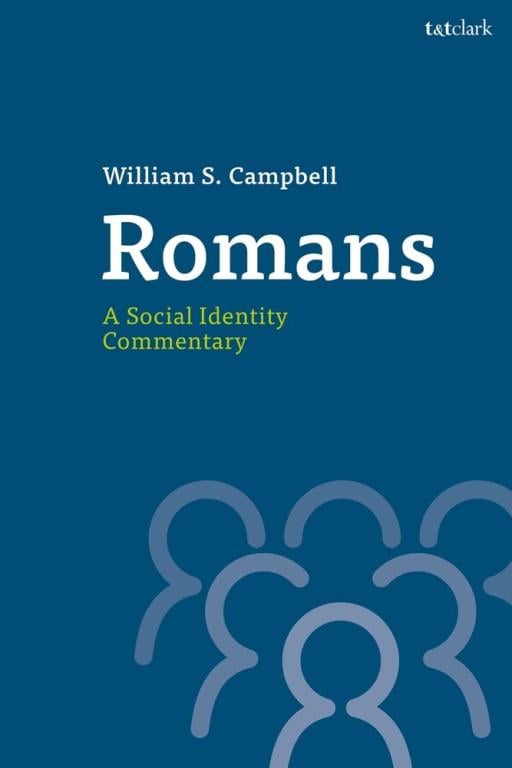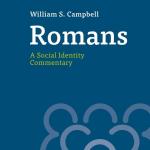Campbell’s discussion of Rom. 13 is interesting. Campbell rightly notes the connection with the previous chapter, namely the imperatives about non-resistance, overcoming evil with good etc. And he sees Chapter 13 as an extension of that –submitting to, respecting the authorities and giving honor to whom it is due, and paying taxes to whom it is due. There is no authority except from God.
On the Jewish view of the Biblical God authorizing kings and other authorities— see Prov. 8.15,LX of Jer. 34.5-7, Isa. 45.1-3, Dan. 2.21,36-38, Sir. 10.4, Josephus War 2.197, Apion 2.76-77, Philo Legat. 157. Arist. 45. One pays taxes as indication of submission to the governing authorities. Campbell mentions several times that the Gentile Christians in Rome may in fact be many or mostly immigrants in which case they would be subject to a special tax on immigrants, and might be reluctant to pay it— hence the exhortation here. Notice that the emperor is called the servant of God. (diakonos) not God. Ideally these overlords are to govern for your good and not for harm. According to Paul the Roman gov. has the power and authority to punish wrong-doing and reward the good…
Campbell stresses the word— due, give the Roman authorities only what is their due. And render unto God what is his due— trust and obedience, not mere submissions and compliance. Campbell does not think love is the fulling of the law means you can neglect or ignore other portions of the law. Love is not in opposition to the law, but actualizes obedience to what God requires. He follows C. Beker’s claim that Christ does not so much fulfill the promises as actualize or confirm or guarantee them. Loving neighbor as self is expressed by not commiting adultery, murder, theft, coveting against them. Paul is talking about love in action, not sentiments. The love command of Lev. 19.18 is the epitome of the second table of the ten commandments.
Campbell suggests Paul uses the diatribal style because he is addressing Gentiles that he has not converted, so he must speak in an indirect manner to make his point, which they are free to follow, but it’s voluntary. The question to be asked here, is what sort of Gentiles were vegetarians on principle, in this case on religious principles? None that I know of. And the echo here of the discussion in 1 Corinthians points in the opposite direction, namely that the weak are Jewish Christians who abstain from meat offered to idols on principle (what pagan or former pagan feels a conscience need to do that). What Campbell misses in this discussion is that Paul has no problems at all with those who abstain or those who don’t— it’s adiaphora. (i.e. things indifferent about which one doesn’t need rules for everyone). Let each be persuaded in their own mind, and then Paul identifies with those who don’t feel the need to abstain from such food. This does not sound like someone who lives day to day with Kosher dietary rules for his life. Notice he says the same thing about honoring a particular day unto the Lord or all days. He absolutely doesn’t reiterate the sabbath commandment, nor for that matter did Jesus for his first followers. Every day can be the Lord’s day.
In 14.10-12 the judgment seat of God is mentioned, but is this Christ or the Father? In 2 Corinthians it is clearly Christ. Campbell’s default is that Lord here means God unless the context specifies otherwise. But since Paul uses both Lord and God for Christ, this is as dubious default. He is right that the critique is more specifically directed towards the strong than the weak, but Paul critiques the weak for judging the strong for eating or worshipping whenever they like. Campbell argues that Paul only addresses Gentiles and now he adds probably God-fearing Gentiles some of whom had scruples about food and days of worship. He then goes on to discuss and dismiss the usual interpretation of 14.14 that when Paul says he is convinced that nothing in itself is koine or profane, he’s not dismissing Jewish food laws as relevant in the discussion. But the very fact that Paul in 1 Cor. 8-10 says eat whatever you find in the meat market without asking questions of conscience, means that Paul here is not primarily concerned with ‘idol meat’ in itself, and nothing is said here about Gentiles going to pagan temple dinner parties, unlike in 1 Cor. Rather Paul enforces the don’t cause your brother to stumble by your own eating practices etc. because whatever they cannot do in faith is sin for them against their conscience. Notice again it is the weak who have too many scruples. Paul is clear enough in 14.17ff. that everything is pure or clean. But those who have scruples about some food shouldn’t eat or be led to eat it.












